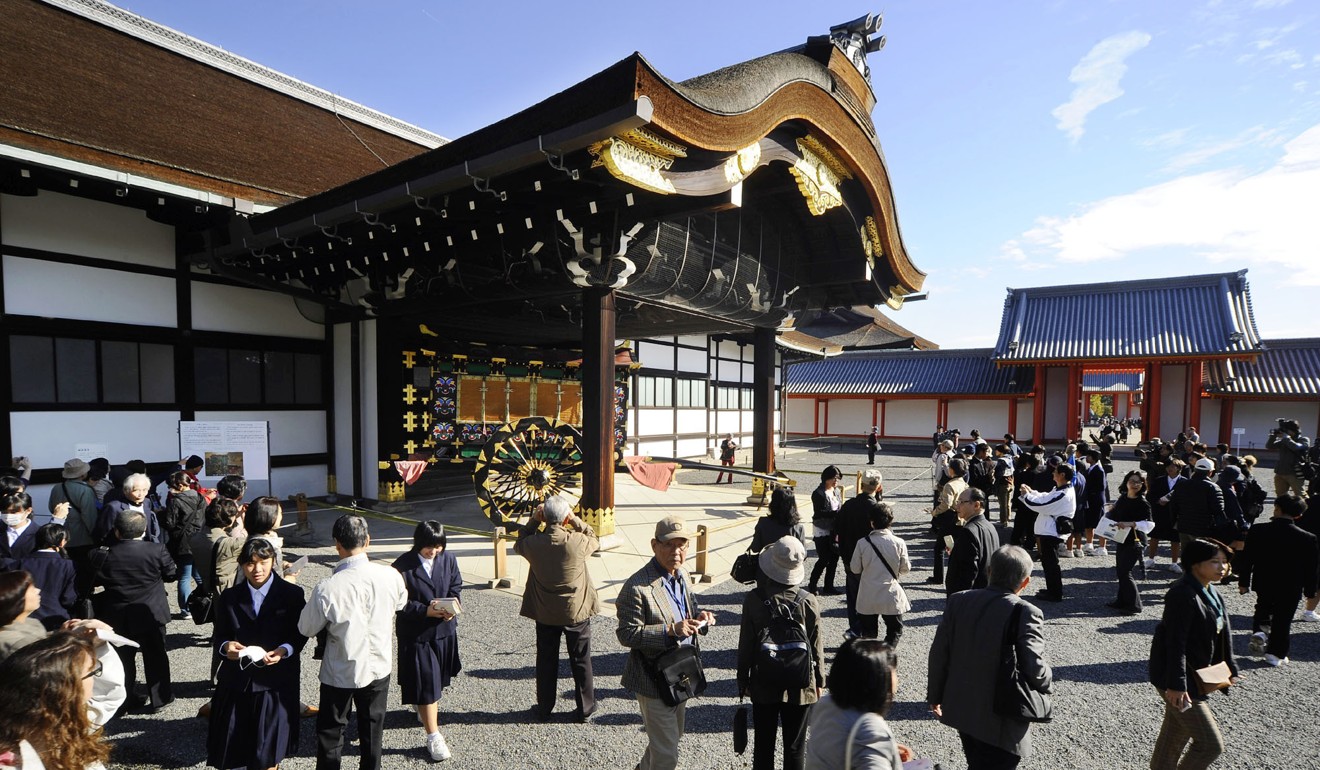
Japan packs its bags for 10-day imperial succession holiday
- The extended ‘golden week’ holiday period begins on Saturday, offering citizens the chance to enjoy a prolonged vacation
- Many hotels in tourist hotspots are already fully booked, with travel agencies also selling out of special packages to mark the occasion

“Every travel package that we offered over the golden week holidays this year is completely sold out,” said Kaori Mori, a spokeswoman for domestic travel giant JTB Corp.
“People so rarely get a 10-day break that they are really taking advantage of the longer holidays and, even though it’s expensive, they are choosing extended vacations both at home and abroad.”
Emperor Akihito’s exit resets Japanese calendar
Within Japan, the far-flung islands of Okinawa and Hokkaido have proved particularly popular, as have the less-explored parts of Shikoku, Mori said – although she cautioned that anyone who has left it to the last minute before attempting to make a reservation is likely to be disappointed because most places are fully booked.
To tap into the interest surrounding events involving the imperial family over the coming days, JTB has created a series of specialist commemorative trips, including tours to Ise Jingu, a shrine complex in Mie prefecture that is considered the spiritual home of the Shinto religion and the spot where the legendary sun goddess Amaterasu is enshrined.

Mitsuko Washio, marketing manager of the Hyatt Regency Kyoto, said the property is “almost fully booked during golden week and we are definitely busier than in previous years.”
She added that the increase in foreign visitors to the city was conspicuously larger than in previous years, although it is not clear how many – if any – booked their holidays as a direct result of the abdication and enthronement ceremonies.
The Japan National Tourism Organisation does not collate statistics on foreign visitors during the golden week holidays specifically, although their monthly figures show that more than 2.9 million overseas tourists came to Japan in April last year, up from 2.58 million the previous year.
‘Pollution by tourism’: How Japan fell out of love with foreign visitors
This reflects a general upwards trend in overseas visitors, with 31.19 million arriving last year – up from 28.69 million in 2017. Figures for the start of this year indicate that the country is on course to set a record for foreign tourists.
Mori, of JTB Corp, said the well-heeled were planning to head further afield.
Japan bids farewell to emperor with a common touch as divisions over monarchy deepen
Which is in keeping with the public’s “old fashioned … but in a good way” reverence and respect for the monarchy, according to Ignatius Cronin, international public relations director at Tokyo’s Imperial Hotel.
“The hotel is very busy at the moment, both with domestic and international visitors taking advantage of the golden week holidays, but we are not doing anything linked to the abdication or the enthronement of the new emperor,” he said.
“The hotel has a long history with the imperial family and was actually set up in 1890 at the behest of the emperor, but to try to link the hotel to these ceremonies would be considered vulgar.

Mori, of JTB Corp, said she fears that everywhere in Japan will be too busy, so she intends to stay close to home, relax and recuperate after her industry’s frantic run-up to the busiest time of the year.
Makoto Hosomura, a sales executive from Saitama prefecture, north of Tokyo, also plans to use the time off to rest.
“I think we will watch some of the events on television, but going away would be difficult because everywhere is just too congested and prices are far too high,” he said. “It would not be fun so we decided to spend some time together with our family and perhaps take a short holiday later in the year.”
For others, like university student Issei Izawa, the prolonged break will actually mean more hard work.
“I work in a wedding hall and golden week is always super busy, but this year it’s 10 days long so I’ll have no time off for that whole time,” he said. “It will be good to earn some money, but I’m going to need a few days off at the end of it all.”

